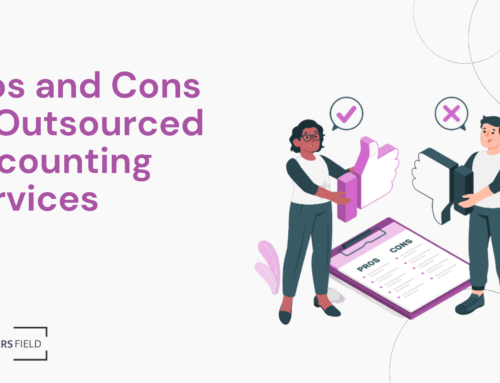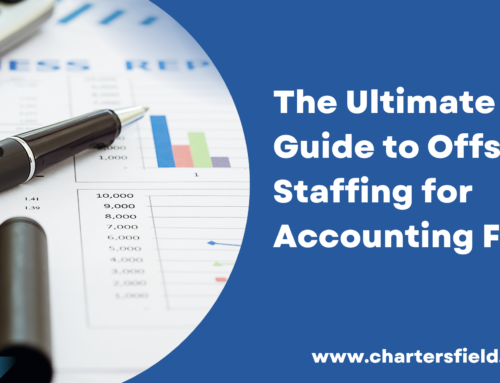Introduction
In the dynamic and competitive landscape of the business world, accounting firms are constantly seeking innovative solutions to meet client demands, optimize operational efficiency, and stay ahead of the curve. One such strategic solution gaining prominence is offshore staffing. In this comprehensive exploration, we will delve into the intricacies of offshore staffing for accounting firms, uncovering its advantages and shedding light on best practices for implementation.
Understanding Offshore Staffing
Definition
Offshore staffing, synonymous with outsourcing or offshoring, involves engaging professionals from other countries to handle specific tasks or functions for a business. In the realm of accounting firms, this translates to delegating accounting and finance-related responsibilities to qualified professionals located in different geographical regions.
Common Offshore Destinations
Numerous countries have become sought-after destinations for offshore staffing due to their skilled workforce, cost-effectiveness, and favorable business environments. Notable examples include India, the Philippines, and various Eastern European countries.
Advantages of Offshore Staffing for Accounting Firms
1. Cost Efficiency
A primary catalyst for adopting offshore staffing is the potential for significant cost savings. Offshore labor markets often provide highly skilled professionals at a fraction of the cost compared to hiring locally. This financial advantage allows accounting firms to strategically allocate resources, directing savings towards innovation, technology, or additional client services.
2. Access to a Skilled Talent Pool
Offshore staffing opens the door to a diverse and highly skilled talent pool. Professionals in offshore locations are typically well-educated, experienced, and proficient in accounting practices. This access to specialized expertise allows accounting firms to expand their service offerings without the need for extensive in-house training, ultimately enhancing the quality of their services.
3. Enhanced Productivity
Leveraging time zone differences, offshore staffing facilitates a 24/7 work cycle. While the onshore team rests, the offshore team can progress on critical tasks, leading to faster project completion, quicker response times, and improved overall productivity for the accounting firm.
Must Read : Virtual Tax Preparation Services vs. In-House Solutions: Which One Is Best
4. Focus on Core Competencies
Outsourcing routine and time-consuming tasks to offshore staff enables onshore teams at accounting firms to concentrate on their core competencies. By redirecting their focus towards high-value activities such as client advisory services, business consulting, and strategic financial planning, accounting firms can elevate the overall quality of their service delivery.
5. Scalability and Flexibility
Offshore staffing provides accounting firms with the flexibility to scale their workforce based on business needs. This scalability is particularly valuable during peak seasons or when undertaking large projects, ensuring that firms can meet client demands without overburdening their local resources. The flexibility offered by offshore staffing aligns with the dynamic nature of the accounting industry.
6. Risk Mitigation
Diversifying the geographic location of the workforce serves as a risk mitigation strategy for accounting firms. This approach helps reduce vulnerability to local economic downturns, natural disasters, or other unforeseen events that may impact business operations. With a global talent pool, accounting firms can navigate challenges more resiliently.
Best Practices for Implementing Offshore Staffing
1. Clear Communication
2. Robust Technology Infrastructure
Investing in a robust technology infrastructure is essential for supporting remote collaboration and ensuring the security of sensitive financial data. Cloud-based accounting tools, project management software, and secure communication platforms are vital components of a successful offshore staffing setup.
3. Legal and Compliance Considerations
Understanding and adhering to legal and compliance requirements are critical when engaging in offshore staffing. This includes compliance with data protection regulations, intellectual property laws, and other relevant legal considerations. Seeking legal advice and implementing necessary safeguards is paramount to a successful offshore staffing strategy.
4. Time Savings
One significant advantage often overlooked is the considerable time savings that come with offshore staffing. The 24/7 work cycle, facilitated by leveraging different time zones, ensures that tasks are being worked on continuously. This can lead to substantial reductions in project timelines, allowing accounting firms to meet deadlines more efficiently and improve overall service delivery.
Must Read : Digital Transformation Future Of Accounting Firms
Points to Consider While Choosing an Offshore Staffing Partner
1. Industry Experience
When selecting an offshore staffing partner for an accounting firm, it’s crucial to consider the provider’s industry experience. Look for partners with a track record of delivering accounting and finance services to ensure they understand the specific requirements and nuances of the profession.
2. Reputation and References
Research the reputation of potential offshore partners. Seek references from other businesses or firms that have engaged their services. A reliable offshore partner should be transparent about their past performance and willing to provide references that attest to their capabilities.
3. Language Proficiency
Effective communication is essential for successful collaboration. Ensure that the offshore team possesses strong language proficiency in the languages commonly used in accounting and finance. This will minimize the risk of miscommunication and enhance the overall quality of work.
4. Data Security Measures
Given the sensitive nature of financial data, prioritizing data security is imperative when choosing an offshore staffing partner. Inquire about the security measures they have in place, including encryption protocols, secure communication channels, and compliance with data protection regulations.
5. Flexibility and Scalability
Choose an offshore partner that offers flexibility and scalability to adapt to the accounting firm’s changing needs. This ensures that the partnership remains dynamic, allowing
Conclusion
In conclusion, offshore staffing for accounting firms offers a plethora of benefits, ranging from cost efficiency and access to skilled talent to enhanced productivity and risk mitigation. By strategically incorporating offshore resources, accounting firms can position themselves for long-term success in a competitive and rapidly evolving industry. Adopting best practices in communication, technology infrastructure, and legal compliance is key to unlocking the full potential of offshore staffing and ensuring a seamless integration of onshore and offshore teams.



